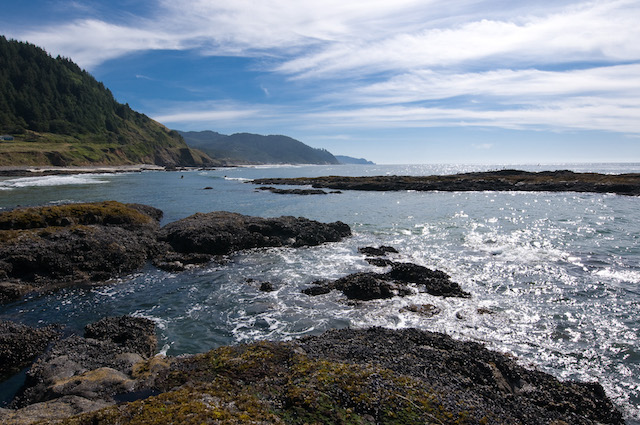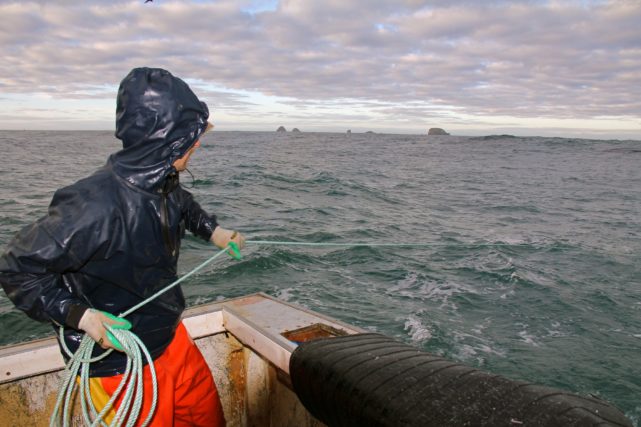The ocean off of Oregon’s Coast is one of the richest temperate marine ecosystems in the world, and since the 1970’s Oregonians have strived for meaningful and enduring protection for this special place and invaluable resource. After many years of work, Oregonians succeeded in establishing the first marine reserves off the Oregon coast.
Green Fire Productions documented the effort and produced three films for the Common Ground series. The highly-acclaimed films feature compelling interviews, captivating underwater footage filmed off the Oregon Coast and screened across the state, with a focus on coastal communities. The films played a significant role building awareness and support for a network of marine reserves in Oregon, leading to the designation of five marine reserves in Oregon’s nearshore waters. Read more about the films…
There are three films in this series
A Catalyst for Ocean Conservation
Common Ground struck a nerve across Oregon. From Charleston to Astoria and from Portland to Newport, hundreds filled theaters to capacity to watch this film and discuss threats to marine life and potential benefits for the ocean by designating marine reserves.
In 2002, Oregon’s Ocean Policy Advisory Council (OPAC) recommended testing a limited number of marine reserves but a bitter battle ensued between industry, state government and conservationists and the process stalled.
Green Fire Productions produced Common Ground to get people talking about marine reserves. Panel discussions following screenings consistently included both conservationists and industry representatives who have been public skeptics about reserves. This broadened the audience for the film and led to real dialogue.
In the small fishing town of Port Orford – population 600 – more than 200 people attended the local screening. In the days that followed, Port Orford fishermen began discussing the possibility of marine reserve in the ocean waters that they fish. Leesa Cobb of the Port Orford Ocean Resource Team said, “The Common Ground event was the catalyst for the fishermen to move forward.”
According to state natural resource agency staff, the films have sparked “true dialogue” among individuals and organizations “that were not talking or listening to each other before the project. Now they are. This is no mean feat given the emotional nature of the issue, and is certainly something that none of the parties or a government entity could have established.”
By creating films and screening events that respect differing points of view, the film series enabled one-time adversaries to find common ground. “This project has provided an unprecedented forum for open communication among groups that otherwise rarely meet face-to-face,” says Mark Hixon, a marine biologist at Oregon State University. “It is encouraging mutual understanding and generating trust.”
Learn more about Oregon’s marine reserves.



